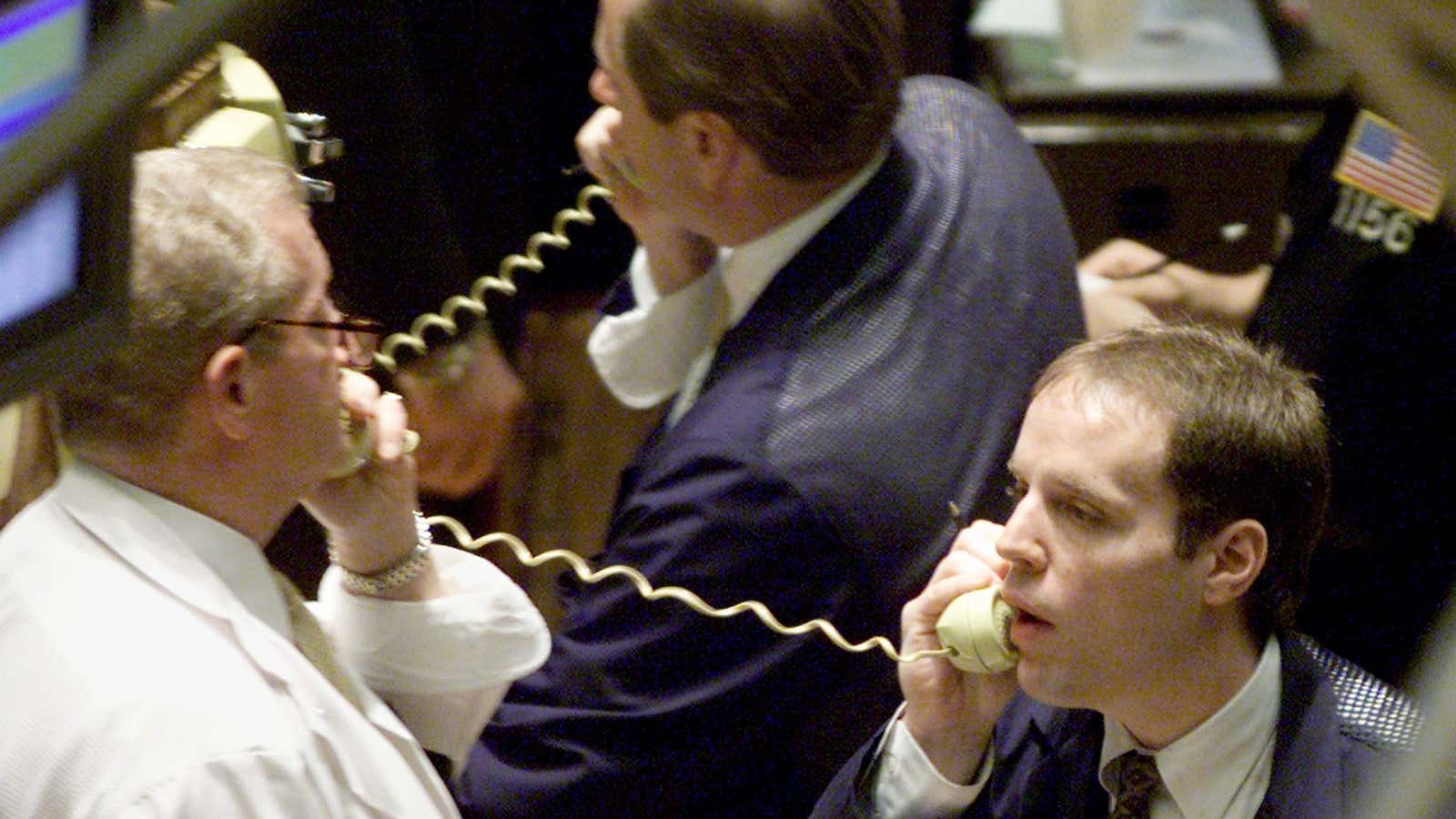Very few American women make it into the C-suite—and it’s even harder for them to make their voices heard on corporate earnings calls. Bloomberg reports that in 155,000 conference calls over the past 19 years, men spoke 92% of time.
Prattle, a company that uses artificial intelligence to parse communications, conducted the study at Bloomberg’s request. The report also found that men made 5 million of the 5.4 million comments recorded on earnings calls. These results are influenced by the significantly larger portion of men present—but it’s also because men hog the mic.
“Male executives provide significantly more verbose answers to analyst questions than their female counterparts,” Prattle CEO Evan Schnidman told Bloomberg. “One could surmise that male executives are more prone to speaking simply to hear themselves speak.”
In the last eight years, women made up 10.2% of earnings calls on average, but only spoke for 7.9% of the time.
It gets worse: Prattle’s analysis also found that 8% women’s comments consist of introductory remarks by investor relations executives. Women make up almost one quarter of investor relations personnel, but are still largely underrepresented in other sectors and roles.
Previous research has shown that women speak less in other settings too, such as academic conferences and the Supreme Court, and that in most mixed-gender meetings, men suck up approximately 75% of the talking time. Even the most powerful women in business and politics are routinely interrupted.
Last month, Rebecca Blumenstein, deputy managing editor at the New York Times told Quartz that she has learned to make an effort to speak up early in large meetings:
I think as women, not to generalize, but many of us can feel intimidated to speak up—even with 25 years in your business and knowing the topics relatively well. So I just made a point of speaking up early in meetings, because if you don’t, you begin to have thoughts, then someone else will make your point, and you begin to feel like not so much a part of the meeting. It may seem silly, but that basic meeting dynamic is something that’s very important to our peers, and something I’m still working on now.
